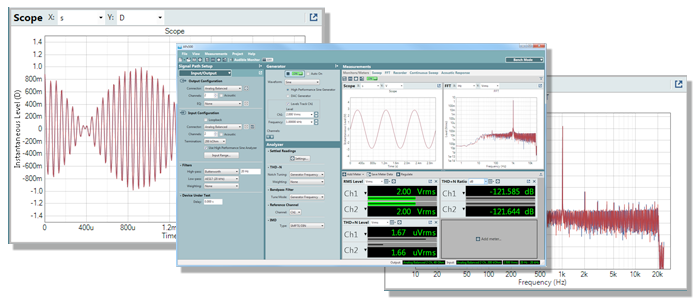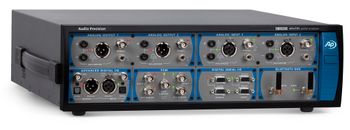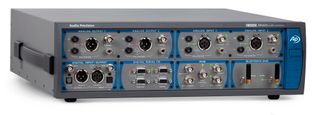Audio Precision Releases APx Software Version 6.1 |
||||||||
Raising the Bar for Rub & Buzz Defect DetectionMajor enhancements added in APx500 Software, version 6.1 |
||||||||
|
BEAVERTON, OREGON, June1, 2021: Audio Precision today released the latest update to APx500 audio measurement software, version 6.1. With this release, AP is adding new measurement results, options, and test signals to establish APx500 software as the best solution for production test of loudspeakers, headphone drivers, and microphones. Most importantly for the designers and manufacturers of speaker drivers, and products incorporating them, APx software now offers the broadest set of methodologies available for detecting rub and buzz defects. |
||||||||
What is Rub and Buzz
|
||||||||
|
Rub and Buzz Methods So, with rub & buzz defects, you have imperfections in a speaker that can negatively impact a listener’s perception of the speaker’s quality, but those defects are not necessarily detectable by traditional audio measurements. To address this issue, several different rub & buzz detection methodologies have been developed within the industry: various approaches using high-pass tracking filters, distortion-oriented methods that focus only on high-order harmonics, and techniques applying human hearing-based algorithms to the distortion signal. While all these methods are applicable to rub & buzz detection, no single method has achieved uniform adoption in the industry. With the release of APx500 software version 6.1, Audio Precision now offers the broadest set of rub & buzz defect detection methodologies available to speaker designers and manufacturers:
|
||||||||
|
New Stimulus Signal - Fast Sweep To support the addition of the HOHD and Rub & Buzz Loudness measurements, AP is introducing the Fast Sweep signal with APx500 release version 6.1. Fast Sweep, as its name implies, is an extremely fast stepped frequency sweep with no input or output ranging between steps, continuous transition between steps to minimize transient effects, and has a total sweep time that rivals the speed of a logarithmically-swept sine (chirp) signal. A few of the advantages of the Fast Sweep are the lack of transient ripples at low or high frequencies, the ability to sweep from low-to-high or high-to-low frequency, the support for measuring harmonics above the 20th, and precise control of the number of discrete points used in measurements. |
||||||||
|
Additional New Features In addition to the expanded selection of rub & buzz methods, as well as the new Fast Sweep stimulus, APx500 release version 6.1 now allows users to switch instantly between IEC and IEEE THD calculation modes for harmonic distortion results. Version 6.1 also adds the ability to normalize harmonic distortion results, addressing common measurement artifacts that occur when testing loudspeakers. Users can now also save all acquired waveform, impulse response, or cross-correlations results to .wav files, and this function can be included as a sequence step in automated measurement sequences. “While version 6.1 is officially a minor release, and thus a free upgrade to any analyzer licensed for version 6.0, it delivers significant, new capabilities, especially for those involved in the design, manufacture, and test of speaker drivers and any product incorporating them,” said Daniel Knighten, Audio Precision General Manager. “Simply put, APx audio measurement software now offers the broadest set of rub & buzz defect detection methodologies available.” |
||||||||
APx500 Version 6.0 & Software Licensing With this latest release, new APx audio analyzers will begin shipping with version 6.1 software. Each new analyzer also includes one year of software maintenance, effectively licensing that instrument for APx version 7.0 when it is released (as well as any minor 6.x releases that occur prior to v7.0). Release v6.1 is a no-cost upgrade for any analyzer licensed for version 6.0 and users need only download v6.1 from AP.com. Software upgrades are available for owners of Legacy APx analyzers, with options for upgrading from v4.x (or earlier) to v5.0, from v4.x to 6.0, and v5.0 to v6.0. Software maintenance contracts are available for instruments licensed for the current release (v6.0), entitling the analyzer to one, three, or five additional major software releases depending upon the contract purchased. Release 6.1 is compatible with all analyzers in the APx500 Series. An APx KeyBox is required to run v6.1 on Legacy APx analyzers. APx KeyBoxes already installed on Legacy analyzers (for v4.6 and 5.0), are also compatible with v6.1 and only require an updated license file once an upgrade is purchased. |
||||||||




















